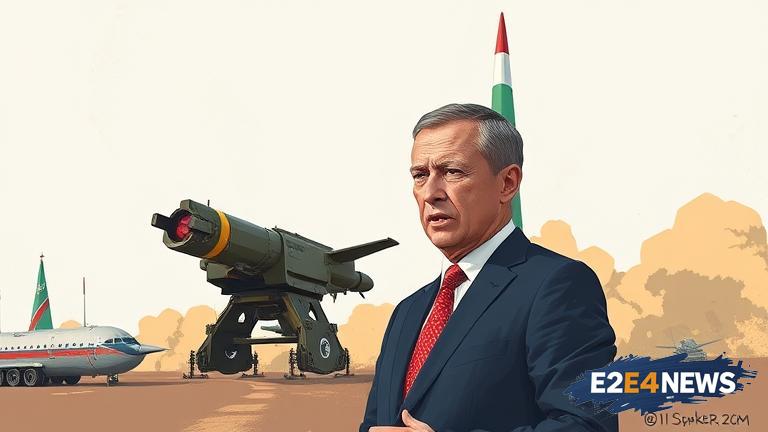Russia’s former President Dmitry Medvedev has warned of further action after the country ended its missile moratorium, a move that has sparked concerns of escalating tensions with the West. The moratorium, which was put in place in 1991, banned the deployment of ground-based cruise missiles with a range of 500-5,500 kilometers. However, Russia announced that it would be ending the moratorium, citing the need to respond to the growing threat from the United States and its allies. Medvedev, who is currently the deputy chairman of Russia’s Security Council, stated that the country would take more steps to ensure its national security. He also warned that Russia would not be intimidated by the West and would take all necessary measures to protect its interests. The move has been met with concern from Western countries, with the United States and NATO expressing their disappointment and warning of the potential consequences of such actions. The ending of the moratorium has also sparked fears of a new arms race, with many experts warning that it could lead to a destabilization of the global security landscape. Russia has long been critical of the United States’ decision to withdraw from the Intermediate-Range Nuclear Forces Treaty (INF), which banned the deployment of ground-based cruise missiles with a range of 500-5,500 kilometers. The country has argued that the US withdrawal from the treaty has created a security vacuum that it needs to fill. The Russian government has also stated that it will not be bound by the terms of the treaty and will develop new missiles to counter the growing threat from the West. The move has been seen as a significant escalation of tensions between Russia and the West, with many experts warning that it could lead to a new Cold War. The United States has already begun to develop new missiles in response to Russia’s actions, with the Pentagon announcing plans to deploy new ground-based cruise missiles in Europe. The move has been met with opposition from many European countries, with some warning that it could lead to a destabilization of the region. Despite the concerns, Russia has shown no signs of backing down, with Medvedev stating that the country will do whatever it takes to protect its national security. The ending of the moratorium has also sparked concerns of a potential arms race in space, with many experts warning that it could lead to a destabilization of the global security landscape. The Russian government has already begun to develop new space-based missiles, with the country’s defense minister stating that it will do whatever it takes to protect its interests in space. The move has been met with concern from Western countries, with the United States and NATO expressing their disappointment and warning of the potential consequences of such actions. The international community has called for calm and restraint, with many experts warning that the escalating tensions between Russia and the West could have serious consequences for global security. The United Nations has urged all parties to engage in diplomatic efforts to resolve their differences and avoid a further escalation of tensions. Despite the calls for calm, the situation remains tense, with many experts warning that the ending of the moratorium could lead to a significant escalation of tensions between Russia and the West. The Russian government has shown no signs of backing down, with Medvedev stating that the country will do whatever it takes to protect its national security. The move has sparked concerns of a potential arms race, with many experts warning that it could lead to a destabilization of the global security landscape. The international community will be watching the situation closely, with many experts warning that the escalating tensions between Russia and the West could have serious consequences for global security.





